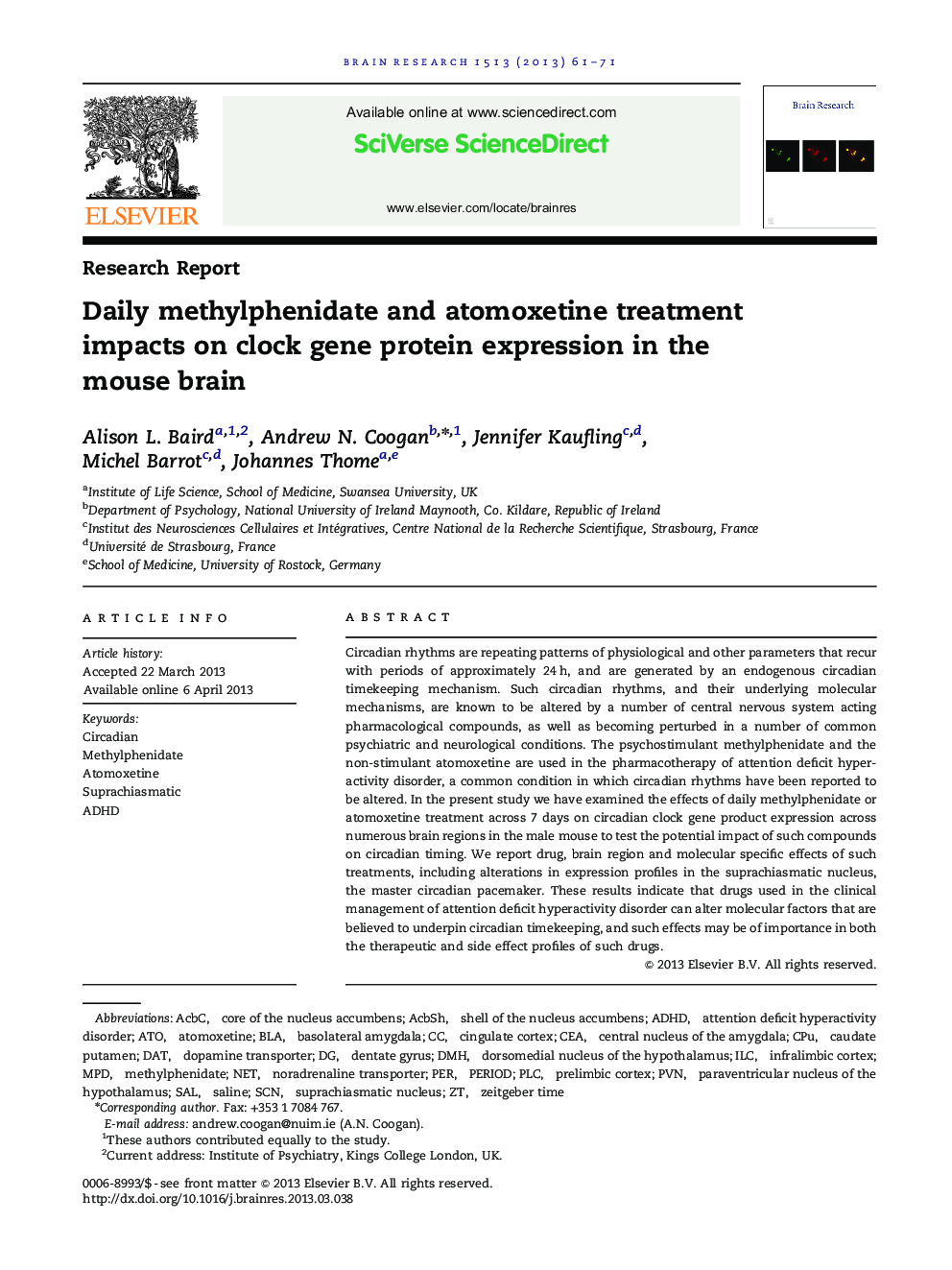| کد مقاله | کد نشریه | سال انتشار | مقاله انگلیسی | نسخه تمام متن |
|---|---|---|---|---|
| 6263875 | 1613926 | 2013 | 11 صفحه PDF | دانلود رایگان |
- Effects of methylphenidate and atomoxetine treatment were examined on clock genes in mouse brain.
- Chronic treatment with either drug leads to alterations in rhythmic PER1, PER2, CLOCK and c-Fos.
- These effects were antigen- and brain-area specific.
- ADHD medication thus alters the core circadian molecular clockworks.
Circadian rhythms are repeating patterns of physiological and other parameters that recur with periods of approximately 24Â h, and are generated by an endogenous circadian timekeeping mechanism. Such circadian rhythms, and their underlying molecular mechanisms, are known to be altered by a number of central nervous system acting pharmacological compounds, as well as becoming perturbed in a number of common psychiatric and neurological conditions. The psychostimulant methylphenidate and the non-stimulant atomoxetine are used in the pharmacotherapy of attention deficit hyperactivity disorder, a common condition in which circadian rhythms have been reported to be altered. In the present study we have examined the effects of daily methylphenidate or atomoxetine treatment across 7 days on circadian clock gene product expression across numerous brain regions in the male mouse to test the potential impact of such compounds on circadian timing. We report drug, brain region and molecular specific effects of such treatments, including alterations in expression profiles in the suprachiasmatic nucleus, the master circadian pacemaker. These results indicate that drugs used in the clinical management of attention deficit hyperactivity disorder can alter molecular factors that are believed to underpin circadian timekeeping, and such effects may be of importance in both the therapeutic and side effect profiles of such drugs.
Journal: Brain Research - Volume 1513, 4 June 2013, Pages 61-71
